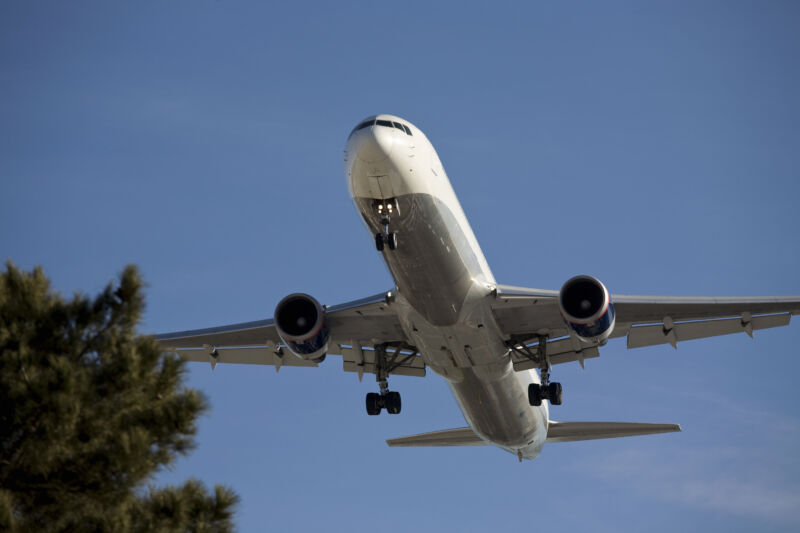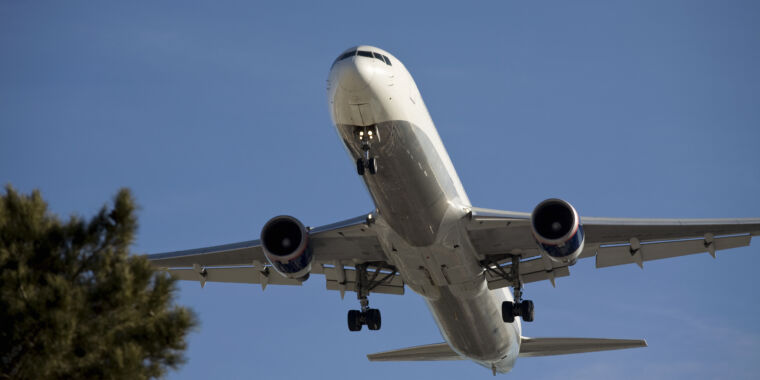
Boeing and Airbus have asked US Department of Transportation Secretary Pete Buttigieg to delay the deployment of C-band spectrum for 5G wireless service. The companies claim the rollout will interfere with key aircraft instruments.
“5G interference could adversely affect the ability of aircraft to safely operate,” said the letter, which has been obtained by Reuters. Boeing CEO David Calhoun and Airbus Americas CEO Jeffery Knittel claim that the rollout, currently scheduled for January 5, could have “an enormous negative impact on the aviation industry.”
Both manufacturers and aviation regulators have expressed concerns over C-band 5G signals interfering with radio altimeters on commercial aircraft. The instruments work by beaming radio signals in the 4.2–4.4 GHz band toward the ground and listening for a reply. By measuring the time it takes for the signal to return to the sensor, the aircraft can calculate its height above the ground. Radio altimeters give pilots a more precise reading than barometric altimeters, which rely on air pressure.
The aviation industry is concerned about the possibility of rogue 5G signals interfering with those calculations. If the FCC authorizes the C-band’s use by mobile carriers, the aviation industry is claiming that tens or hundreds of thousands of flights could face delays, diversions, or cancellations.
Ongoing battle
The 5G C-band rollout has been the subject of a protracted dispute between the Federal Aviation Administration and the Federal Communications Commission. The FCC first sold C-band spectrum to mobile carriers in February 2020 after looking into claims of aircraft instrument interference.
Though the FCC didn’t find any credible evidence of interference, it set aside a 220 MHz guard band, restricting mobile carriers to 3.7–3.98 GHz. That’s “double the minimum guard band requirement discussed in initial comments by Boeing and ASRC [Aviation Spectrum Resources],” the FCC said.
Last month, CTIA, the wireless industry’s trade group, pointed to the ongoing use of C-band 5G in nearly 40 countries “at similar frequencies and similar power levels” as evidence of its safety.
The root cause of the FAA’s concerns appear to be altimeters “built to decades-old specifications,” a wireless technology analyst pointed out, adding that “well-designed equipment with reasonable filtering should not be adversely affected by other equipment operating in adjacent bands—or hundreds of MHz away.”
FAA Administrator Steve Dickson said that the agency is looking into updating its standards for radio altimeters but said that “what that looks like in terms of retrofits remains to be seen.” In a letter to the National Telecommunications and Information Administration, Dickson said that he expects “the cost of replacement or retrofit of radar altimeters will be substantial.”
Last week, six former chairs of the FCC—Republicans Ajit Pai and Michael Powell and Democrats Tom Wheeler, Mignon Clyburn, Julius Genachowski, and Michael Copps—all wrote a letter to FCC Chairwoman Jessica Rosenworcel and NTIA acting Administrator Evelyn Remaley criticizing the FAA’s tactics in challenging the FCC C-band approval and auction. The “FAA position threatens to derail the reasoned conclusions reached by the FCC after years of technical analysis and study,” the former chairs wrote.
